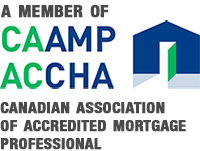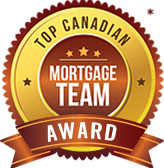

allBecause I’m self-employed my bank was not willing to help me because of my income tax arrears. Jesse helped me to refinance my home to pay off high interest credit cards, a loan and 2 years of income tax arrears. I’m saving over $750 per month for the next 5 year. I’m very thankful for his services and I’m referring to him anyone who is looking for a mortgage.
JESSE BRUN
Mortgage IntelligenceLicense #10428
Mortgage Broker (NB)
Mortgage Agent Level 2 (ON)
Commercial Mortgage Lending Saint John NB
To attain commercial mortgage financing in Saint John N.B the commercial mortgage lending institution often use mortgage agents to prepare the commercial mortgage application. Commercial mortgage lending in Saint John N.B is comprised of institutional lenders and commercial private lenders.
In most cases, commercial mortgage lenders in Saint John will borrow up to 75% value of the property being used as collateral(mortgage will normally not exceed 75% value of the property). Commercial mortgage lenders prefer to finance properties which are located within city limits however they will borrow in small towns or rural areas outside of The Greater Saint John as well.
The lender puts more emphasis on the properties income or the equity of the project. In today’s market is it very common to use short-term private commercial lenders instead of institutional banks in order to finance the development of a commercial project because bank institutions lending policies tend to be very strict. Getting private commercial mortgage financing can be very helpful and crucial in some situations. Commercial private mortgage financing in Saint John N.B is now very popular. Private commercial lending is based on common sense and equity. If you are looking for any kind of mortgage financing I will be happy to help you by answering any of your questions, analysing your situation and then providing you and explaining to you your best options. I’m here to help you and your business is important to me. Some of my clients testimonials are provided on my website for you to be able to view. Please do not hesitate to contact me anytime at 1(888)878-4660 or email me at homeloans@jessebrun.com. Thank you very much and best regards to you!!
How does commercial mortgage financing work?
To attain commercial mortgage financing, many borrowers use a commercial mortgage broker to get financing from a commercial mortgage lender. Commercial mortgage financing is comprised of institutional lenders, sub-prime lender and private lenders. In some cases, commercial mortgage lenders will borrow up to 85% value of the property being used as collateral. Commercial mortgage lenders prefer to finance properties which are located within major cities however commercial lenders will approve commercial mortgages in small towns or rural areas as well if the deal makes sense according to their underwriting guidelines
The commercial institution puts more emphasis on the properties cash flow or the equity of the project as opposed to the client’s personal salary. The commercial property is the primary focus of the lender in most cases. In today’s market is it very common to use short-term private commercial financing instead of institutional financing (traditional banks) in order to finance the development of a commercial project because traditional bank lending policies tend to be very strict and often not reasonable for today’s projects. Getting private commercial mortgage financing can be very helpful and crucial in some situations. Commercial private mortgage financing is now a very popular form of commercial financing. Private commercial lending is based on equity, ability to make the mortgage payments and the exit strategy (concrete plan to pay off the private lender within one or two years). If you are looking for commercial mortgage financing our commercial lender and mortgage broker partners will be happy to assist you. Please fill out our short information form and our most suitable commercial lending partners will contact you.
Some Commercial Definitions and Terms
Commercial Real Estate Appraisal: An estimate of the "market" value of Commercial Real Estate prepared by a licensed appraiser. Appraisers may be licensed by the State and may also be designated as an MAI appraiser (usually required by banks). When making business loans collateralized by commercial real estate, commercial lenders will generally require the appraisal to conform to certain standards which sets forth guidelines for valuing property. Generally, commercial appraisers use three methods for determining values: the "cost approach," which refers to the value of the land and the cost to construct the commercial building and improvements, the "sales comparison approach," which analyzes the sales of similar commercial properties in the area, and the "income approach," which analyzes the income generated or projected to be generated by the use of the commercial property and applying a capitalization rate to that number. Commercial Appraisers will often use and reconcile all 3 approaches to arrive at a value.
Capitalization Rate or "Cap Rate": The Cap Rate is utilized in commercial real estate financing and sales transactions. It is the percentage derived by dividing the income generated from the use of the property by the value of the property. It is used to determine debt service coverage for a loan or potential return on investment. It also used for appraisal of properties whereby appraisers will use an assumed "Cap Rate" (according to market conditions) to determine the value of the property when using the "income approach" to valuation. See Commercial Real Estate Appraisal below.
Common Area Maintenance: Amounts charged to commercial tenants, generally in shopping centers, for their pro rata share of expenses to maintain hallways, restrooms, parking lots, and other common areas.
Compound Interest: Interest is compounded when the interest due on a business loan for a given period is added to the principal amount of the loan and that amount then also accrues interest.
Commercial Construction Loan Fees and Points: A fee charged by the commercial lender for the construction component of a loan. The fee is typically calculated as a percentage of the total construction costs. Points can also be charged by lenders on Permanent Loans as well as by mortgage brokers and loan brokers for services rendered in connection with obtaining a loan.
Conventional Loan – Mixed Use-Commercial: A loan, secured by a mortgage, for an investment property that may be a combination of retail, office and/or residential space.
Conventional Loan – Mixed Use-Industrial: A commercial loan, secured by a mortgage, for an investment property that is leased to tenants in the manufacturing and trade industries and is industrial in nature.
Conventional Loan - Multi-Family: A commercial loan, secured by a mortgage, for a residential investment property that has two or more residential tenants.
Conventional Loan - Owner User: A business loan, secured by a mortgage, to a borrower that uses all or substantially all of the property securing the loan for the operation of its business. Loan purposes may include the purchase or refinance of a commercial business property (owner-user), construction and improvements.
Conventional Loan - Single-Tenant: A commercial real estate loan for an investment property that is fully leased to a single tenant.
Commercial Bridge Financing: A Commercial Bridge Loan is generally a short term commercial loan that is used by business borrowers until a longer term commercial loan can be arranged or a scheduled event occurs which provides the funds to repay the loan. Commercial Bridge loans may be used to, among other things, acquire real estate, make improvements, put tenants in place, etc. Commercial Bridge Loans may also be referred to as Interim Loans and generally carry higher interest rates and fees than Conventional Loans or Permanent Loans (Permanent Mortgage Loan).
Commercial Mortgage: is a mortgage loan secured by a commercial property, such as an , shopping center, office building industrial warehouse, or apartment building. The proceeds from a commercial mortgage loan are usually used to acquire, refinance or redevelop a commercial property.
Commercial mortgages loans are structured so that they meet the needs of the borrower and the lender as well. Some of the key terms of a commercial mortgage loan include the term lenght (sometimes referred to as the "maturity"), amortization schedule, loan amount (sometimes referred to as "loan proceeds"), interest rate, and prepayment flexibility. Commercial mortgages loans are generally subject to more extensive underwriting and extra due diligence before closing. The commercial lender's underwriting process may include a financial review of the commercial property and the property owner (or "sponsor"), as well as commissioning and review of various third-party reports, such as a commercial appraisal.
Commercial mortgage loans can be structured as first liens or, if a greater loan amount is needed, the borrower may be able to obtain subordinate financing as well, sometimes structured as a mezzanine note or as preferred equity, which generally carries a higher interest rate.
Interest rates for commercial mortgage loans can be fixed or floating. Fixed-rate mortgages on stabilized commercial real estate are generally priced based on a spread to swaps, with the swap spread matched to the term of the loan. Market interest rates as well as commercial underwriting factors greatly affect the interest rate quoted on a particular piece of commercial property. Interest rates for commercial mortgage loans are usually higher than those for residential mortgages because they sometimes carry more risk.
Fee: Many commercial mortgage lenders require an application fee or good-faith deposit, which is typically used by the lender to cover underwriting expenses such as an appraisal on the property. Commercial mortgages may also have origination or underwriting fees (paid at close as a reduction in loan proceeds) and/or exit fees (paid when the loan is repaid).
Term: The term of a commercial mortgage loan is generally between five and ten years for stabilized commercial properties with established cash flows and between one and three years for properties in transition, for example, newly opened properties or properties undergoing renovation or repositioning (sometimes called "bridge loans"). Some commercial mortgage lenders may allow a time extensions if certain conditions are met, which could include payment of an extension fee or sometimes referred to a renewal fee. Some commercial mortgage loans have an "anticipated repayment date," which means that if the loan is not repaid by the anticipated repayment date, the loan is not in default.
Business Credit Report: A business credit report is a profile of your business that contains critical information such as payment history that lenders examine when evaluating a business loan application. Dun & Bradstreet (D&B) is a well-known for issuing business reports.
Business Line of Credit: A commercial loan that generally provides for working capital needs of a business. A working capital line (loan) is generally revolving, which means that the business can draw down on the line up to the authorized amount, repay any amount borrowed and re-draw funds as needed during the time that the "Line" is in place. It may be secured by a commercial or residential property or it may be unsecured.




